To help taxpayers continue to navigate ongoing challenges due to the coronavirus pandemic, the Internal Revenue Service has extended the federal income tax filing deadline to May 17, 2021. This extension provides individuals and tax preparers an additional month to gather tax materials and prepare filing statements.
2020 left many Americans reevaluating their immediate and long-term financial goals. According to the Pew Research Center, more than four in ten adults in our country have personally experienced a job loss or had a member of their household experience reduced hours or job loss.
This has put a strain on many individuals, especially those managing debt. As the tax deadline approaches, you may be wondering, how does debt affect my tax return? Can a debt collector claim my tax refund? In this article, we take a look at commonly asked questions about debt collection and taxes.
Can A Debt Collector Claim My Tax Refund?
If you have outstanding, past-due debt, you may be worried about a collection agency garnishing your income tax refund. This is a common concern for many consumers, and luckily the answer is fairly simple: it comes down to what type of debt you owe.
If you receive collection letters related to credit card bills, medical expenses, or accounts for a private company, a private collection agency cannot claim your tax refund directly from the IRS. However, depending on your state collection laws, a collection agency may be able to levy your bank account or garnish your employment wages to cover your debts.
Can Debt Affect My Tax Refund?
While debt and past due accounts can affect your credit rating and ability to secure personal financing options, only the federal government can garnish your refund to cover your debt. There are four types of debt for which the federal government will withhold your reimbursement and send it to your creditors.
These include past-due state income taxes, child support payments, federal taxes, and other amounts due to federal agencies (such as federal student loans).
Does Settling Debt Affect My Taxes?
If you have opted for a debt settlement, it is important to know the tax implications of this type of agreement. In a debt settlement, a consumer and debt collector come to an agreement to reduce the amount owed. This allows the consumer to pay a smaller amount while preventing the creditor from having to write off the entire balance of a past due account.
While this choice may be appealing because it helps you reduce your debt, it can affect your financial health. For instance, the debt settlement will appear on your credit report and may affect your credit score. Furthermore, from a tax perspective, it is not the amount of debt you paid — it’s the amount forgiven — that matters to the IRS.
Depending on the type of debt canceled, your creditor will report the amount you didn’t pay to the IRS, and you will receive a Form 1099-C. This is considered taxable income that should be reported as “Other Income” on your tax returns.
If you have questions regarding debt settlement and how it affects your taxes, reach out to a tax or legal professional for guidance.
Kinum, Inc. offers collection services & comprehensive solutions to clients across the United States. We take a comprehensive approach to help businesses improve their accounts receivable systems by building connections with consumers and helping them resolve their past due accounts.
Please reach out to us at (888) 471-0280 today to learn more about our services.






